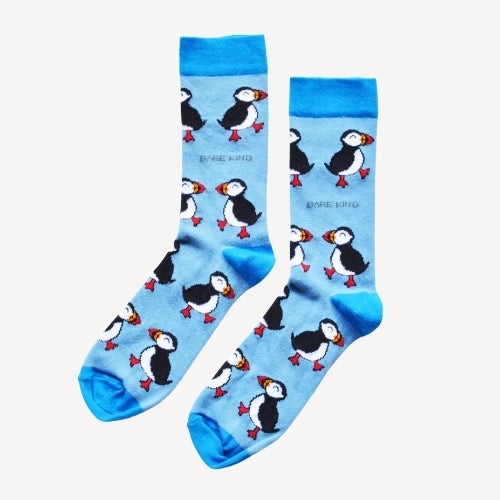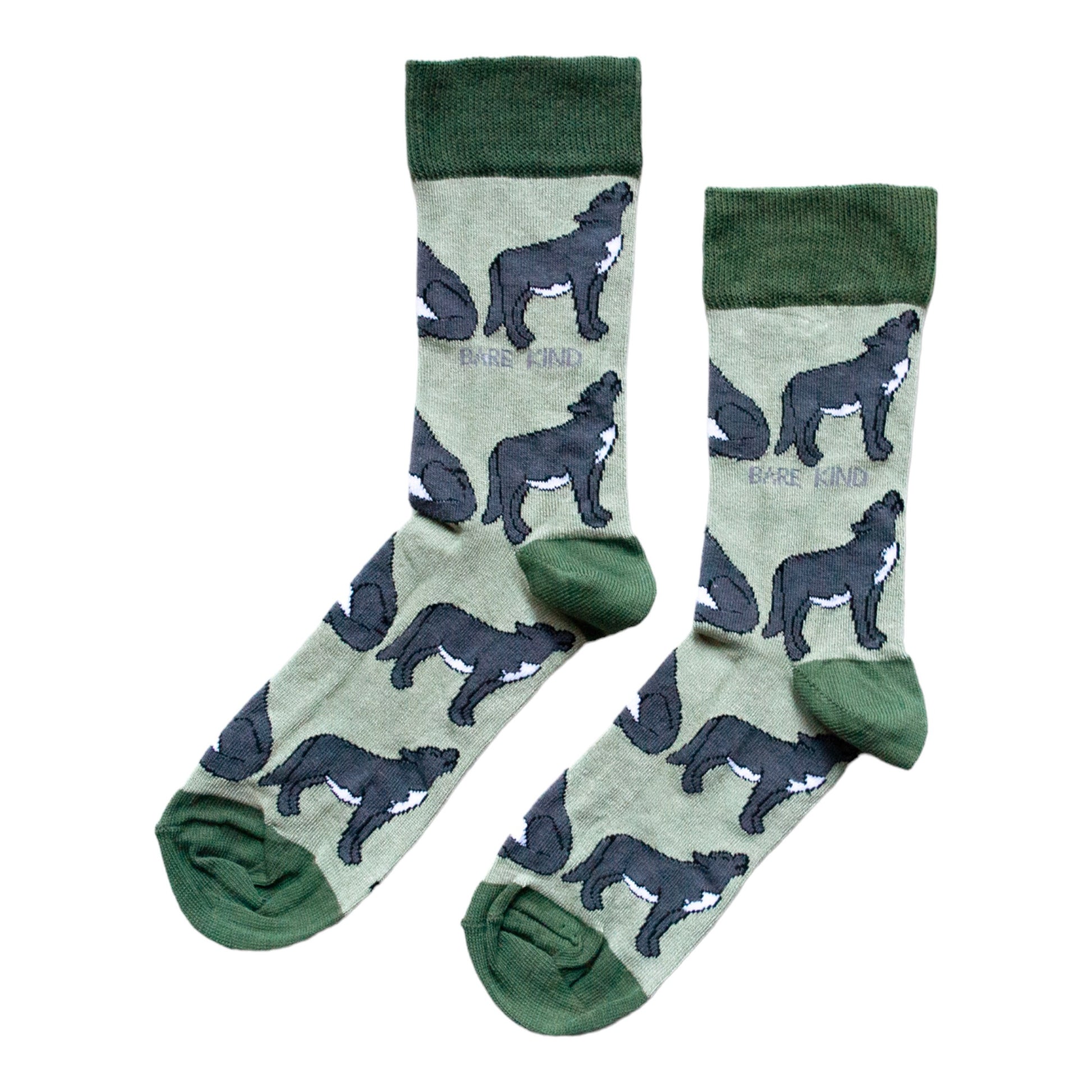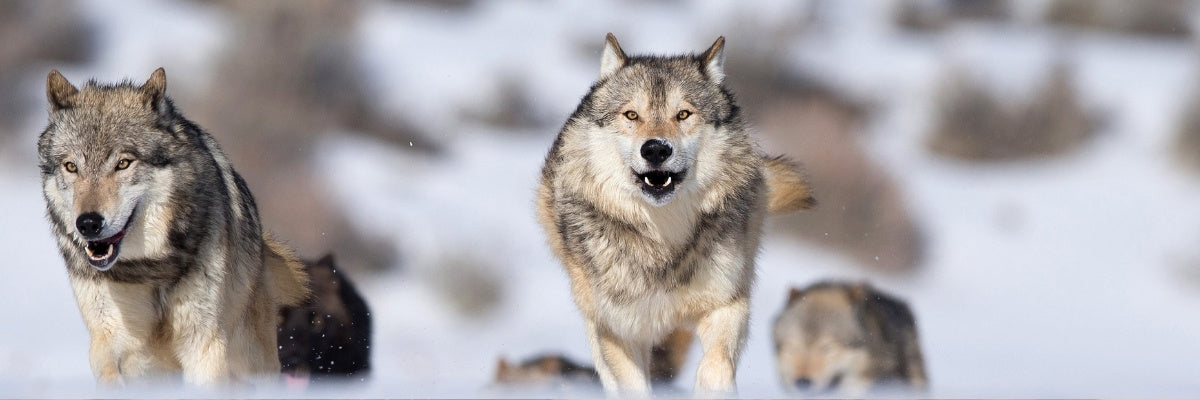
Save the Wolves with Wolves and Humans Foundation
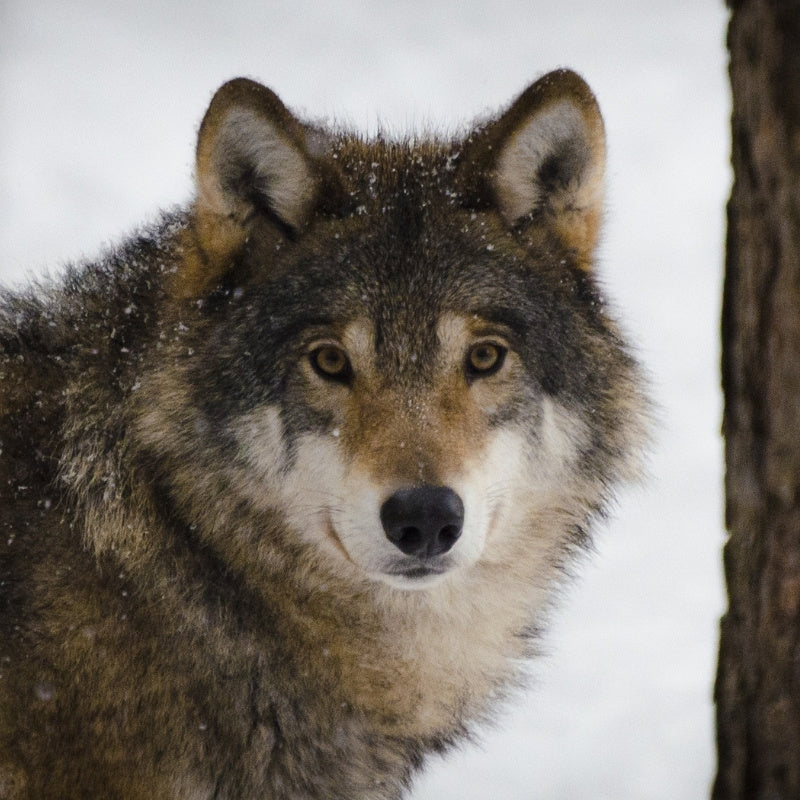
The last known native wolf in the UK was believed to have been killed in Scotland in the 17th century. As such, wolves became extinct in the UK.
Since the 17th century, there have been no confirmed sightings or evidence of wild wolf populations in the country.
However, it's worth noting that sometimes there are reports of large canids being mistaken for wolves or occasional escapees from captivity. These reports are usually investigated, but they have not led to the establishment of a resident wolf population in the UK.
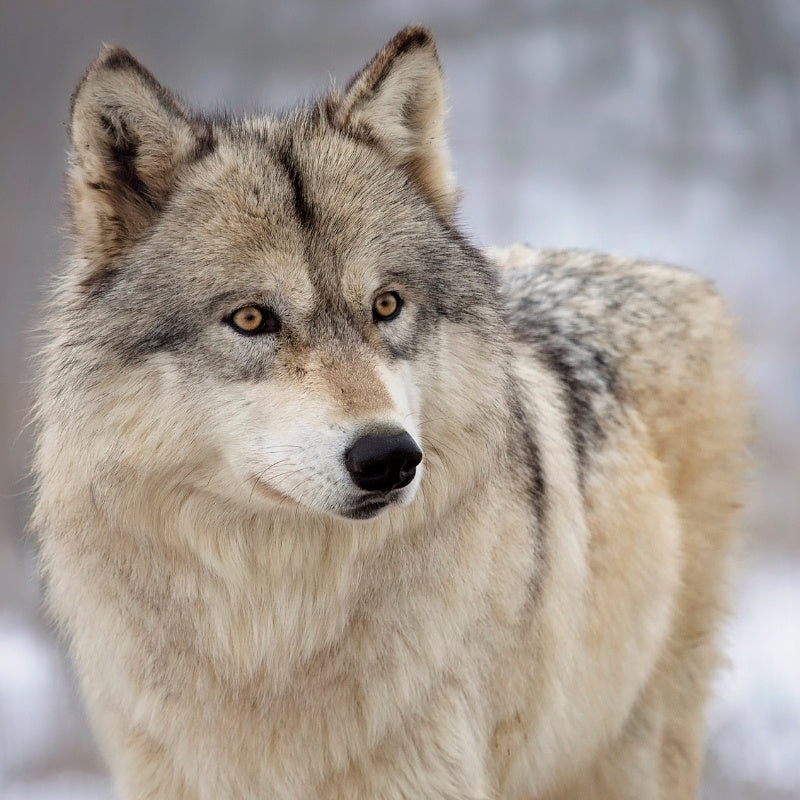
Once widespread throughout Europe, including the British Isles, wolf populations have depleted over recent centuries and decades. From increasing human populations and forest clearings in favour of agriculture, wolves faced increased persecution.
Besides becoming extinct in the UK, from the mid-twentieth century, only small, isolated populations endured in Western Europe and the remote mountainous regions of central and Eastern Europe.
However, most recently, there has been a remarkable resurgence of wolves in numerous countries, thanks to heightened environmental awareness, legal protection, and conservation efforts.
Nevertheless, as wolf populations and territories expand, they are once again encountering conflicts with human activities.
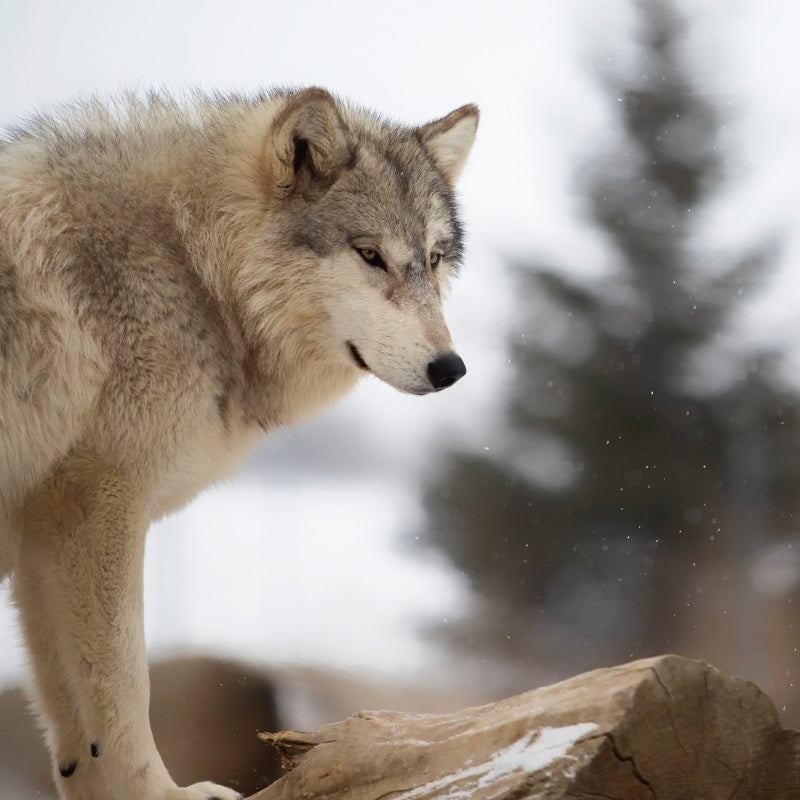
All European wolves are classified as belonging to the species Canis lupus, commonly known as the grey wolf.
Among them, there are two recognised subspecies. The first is the Iberian wolf, scientifically known as Canis lupus signatus, found in Portugal and Spain. This slightly smaller wolf features a reddish coat and notable dark marks on its front legs, which inspired its Latin name "signatus" meaning "marked."
The second subspecies is Canis lupus italicus, an average-sized wolf inhabiting regions in Italy, France, and Switzerland.
Wolves became extinct in the UK 300+ years ago
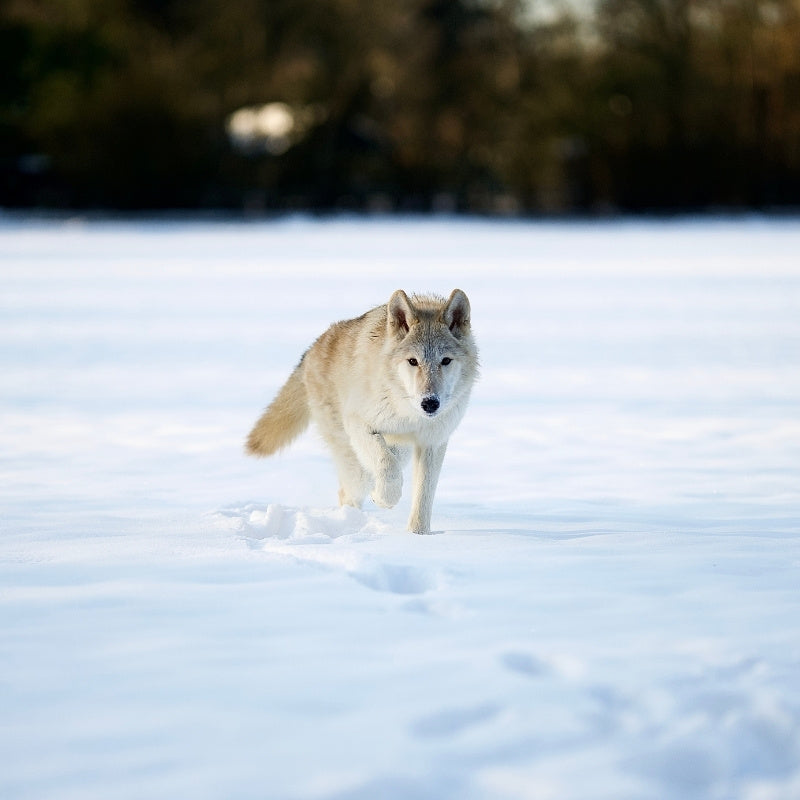
Wolves and Humans collaborate with communities to discover practical coexistence solutions with wolves and other large carnivores, thus promoting their long-term conservation. They focus on 3 key areas:
(1) conservation & coexistence
(2) research
(3) education
By partnering with local biologists and conservationists, W&H offers resources, education, and training to restore traditional methods of safeguarding livestock and preventing predator attacks. They monitor large carnivores to accurately assess their population sizes, as official estimates tend to be inflated.
Additionally, they conduct research to understand the wider impact of these carnivores on the ecosystem in which it inhabits. These findings serve more accurate educational initiatives, debunking myths about wolves and other large carnivores in Europe. Often, W&H collaborates with educators to provide informative materials, lectures, and workshops for adults and children alike. They highlight the benefits of maintaining healthy ecosystems for human well-being.
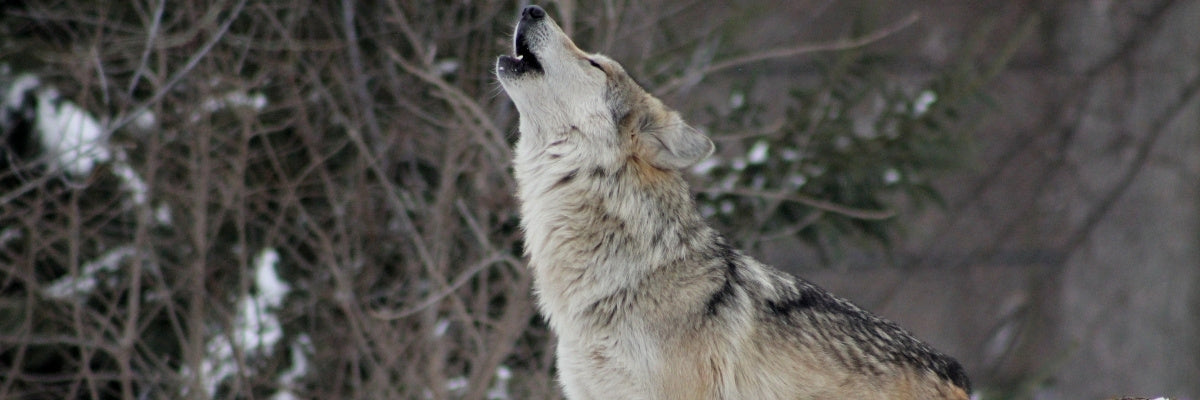
10% of profits on our Wolf socks are donated to Wolves and Humans Foundation to support conservation and education initiatives
We donate 10% of profits from your wolf socks
Save the Wolves Bamboo Socks
Share
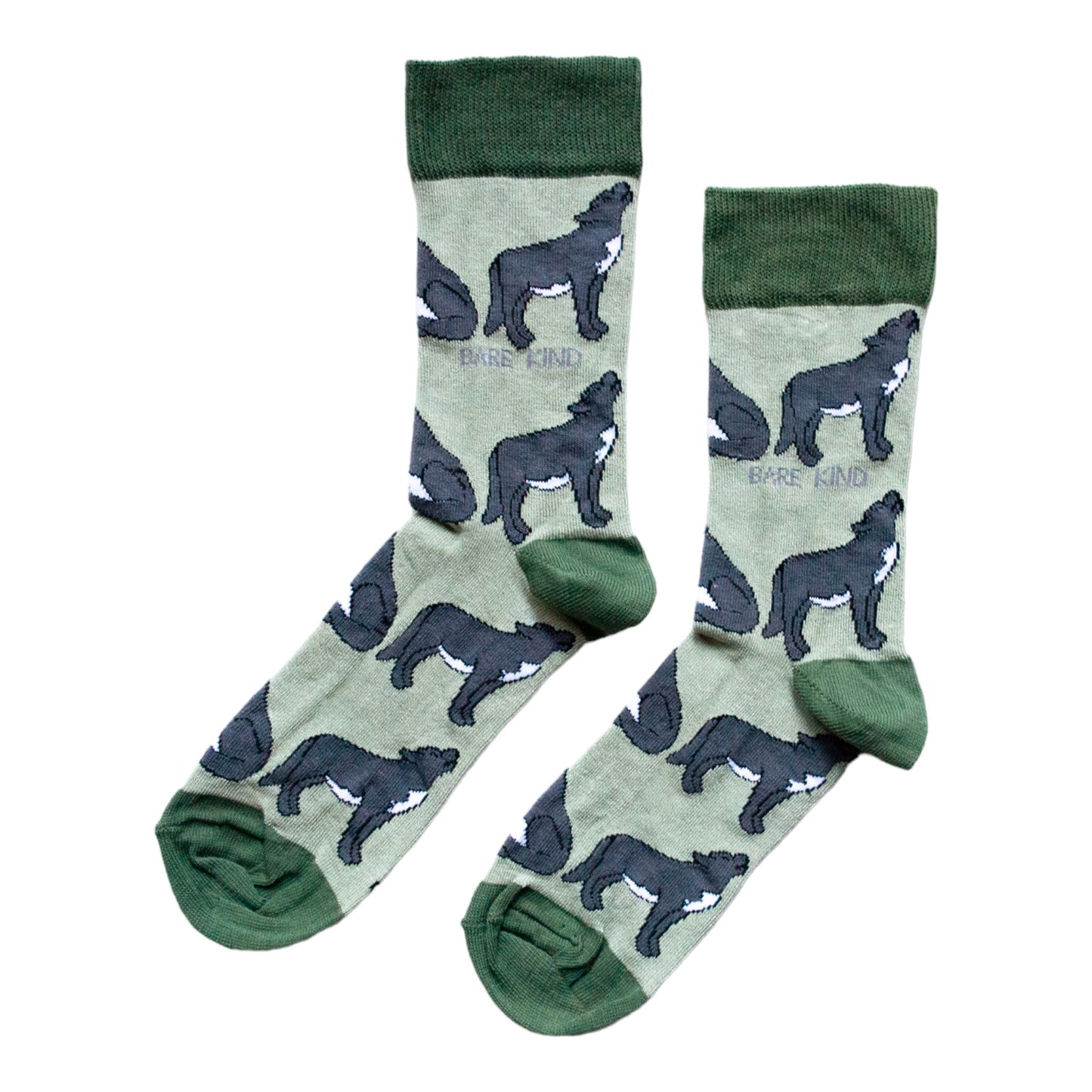
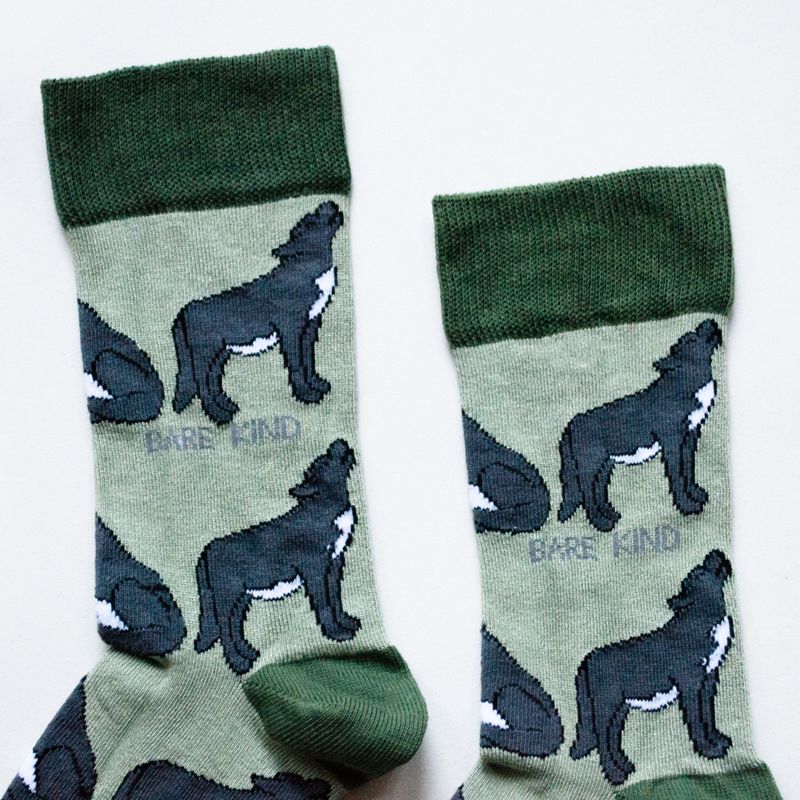
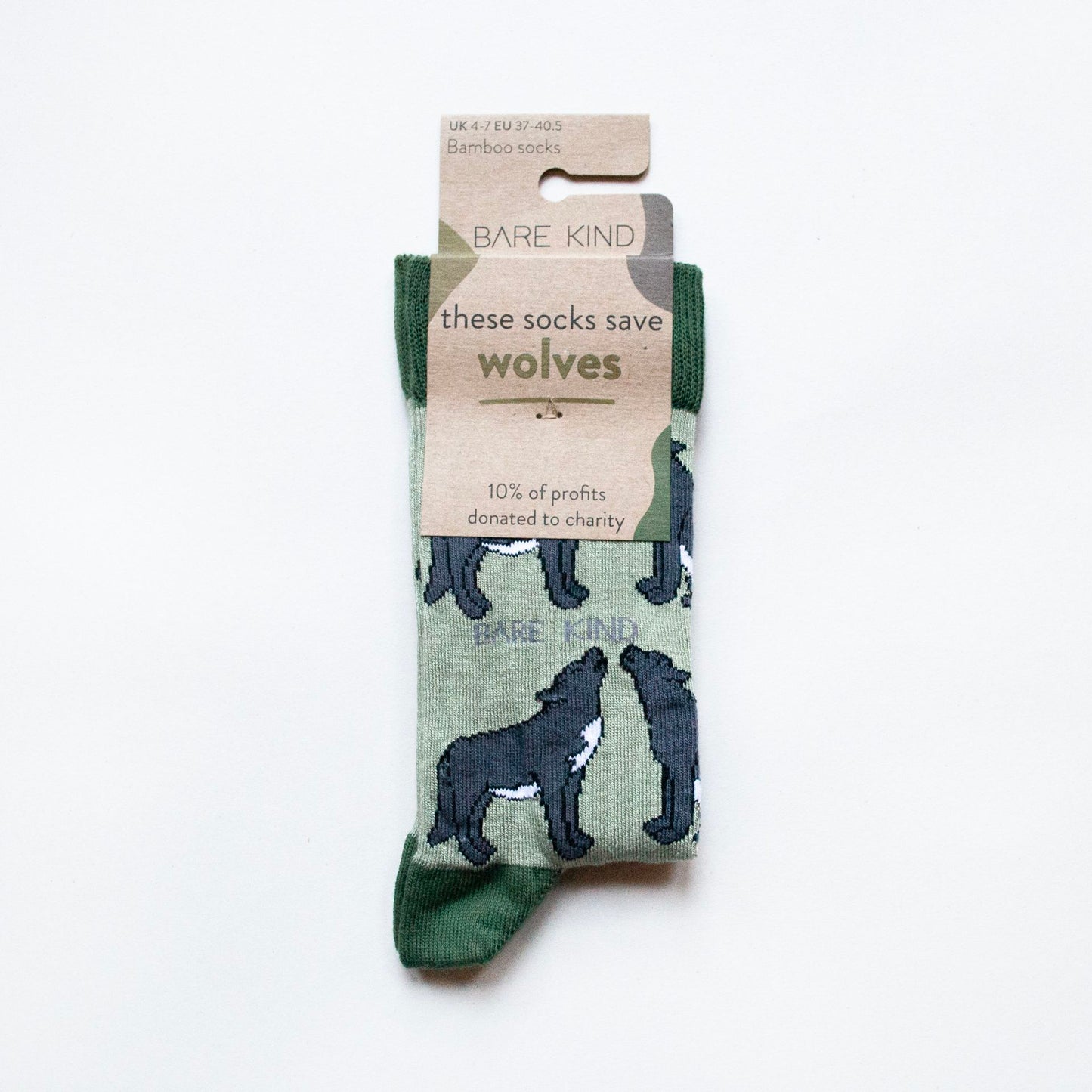
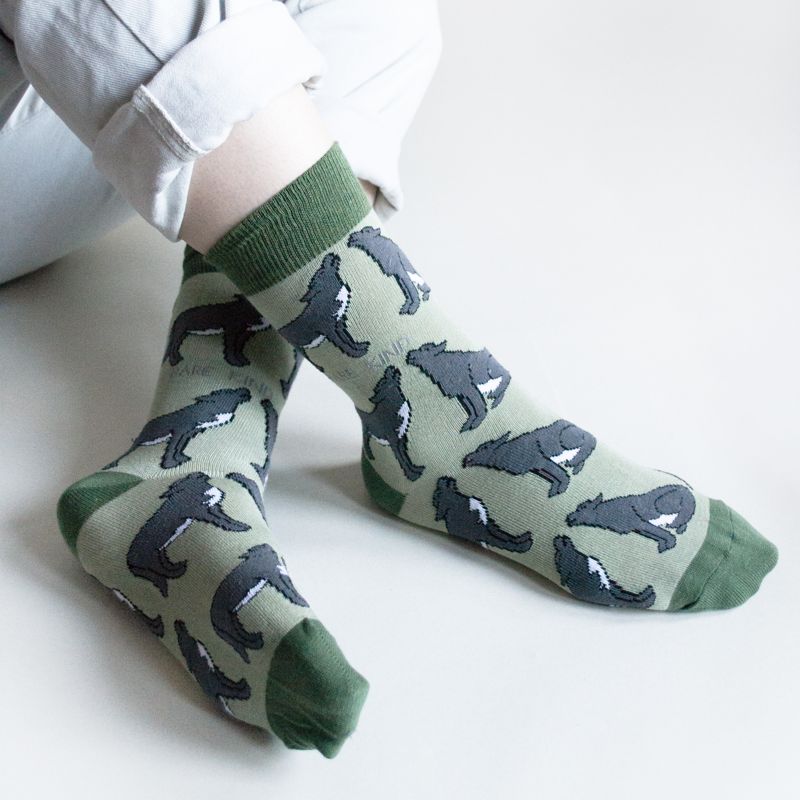
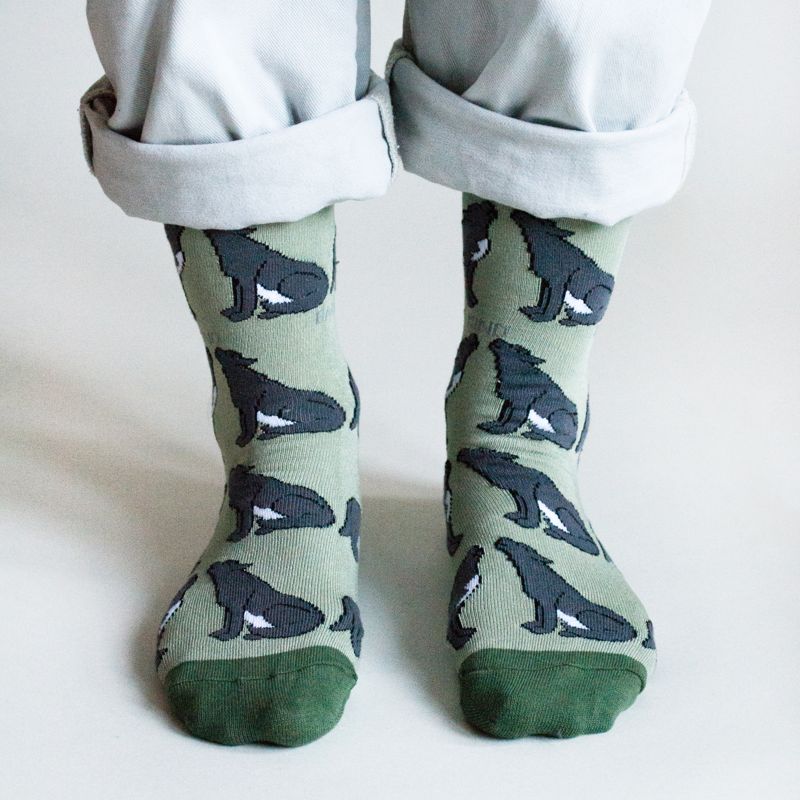
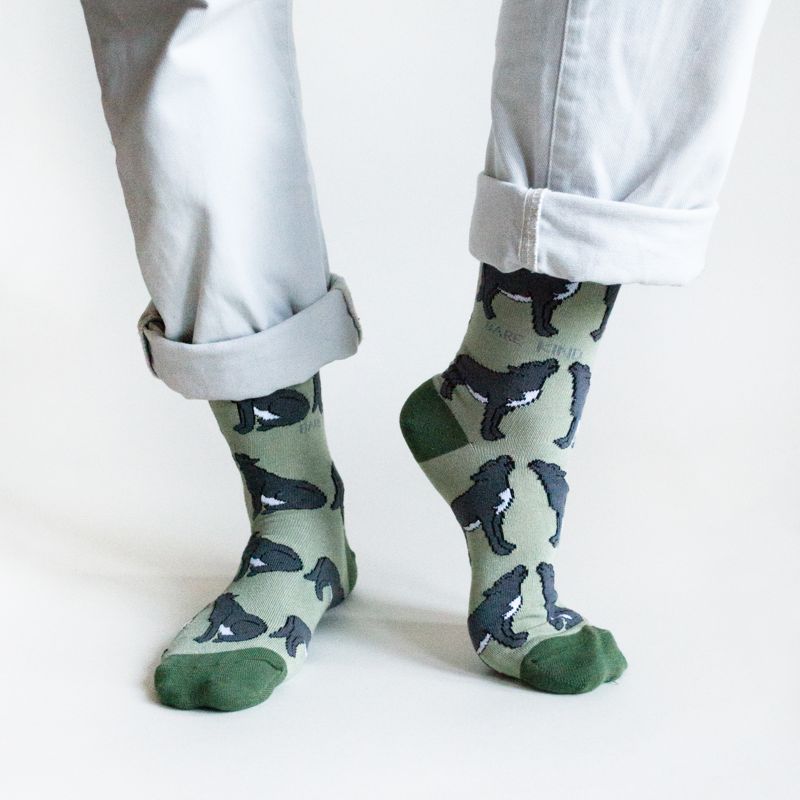
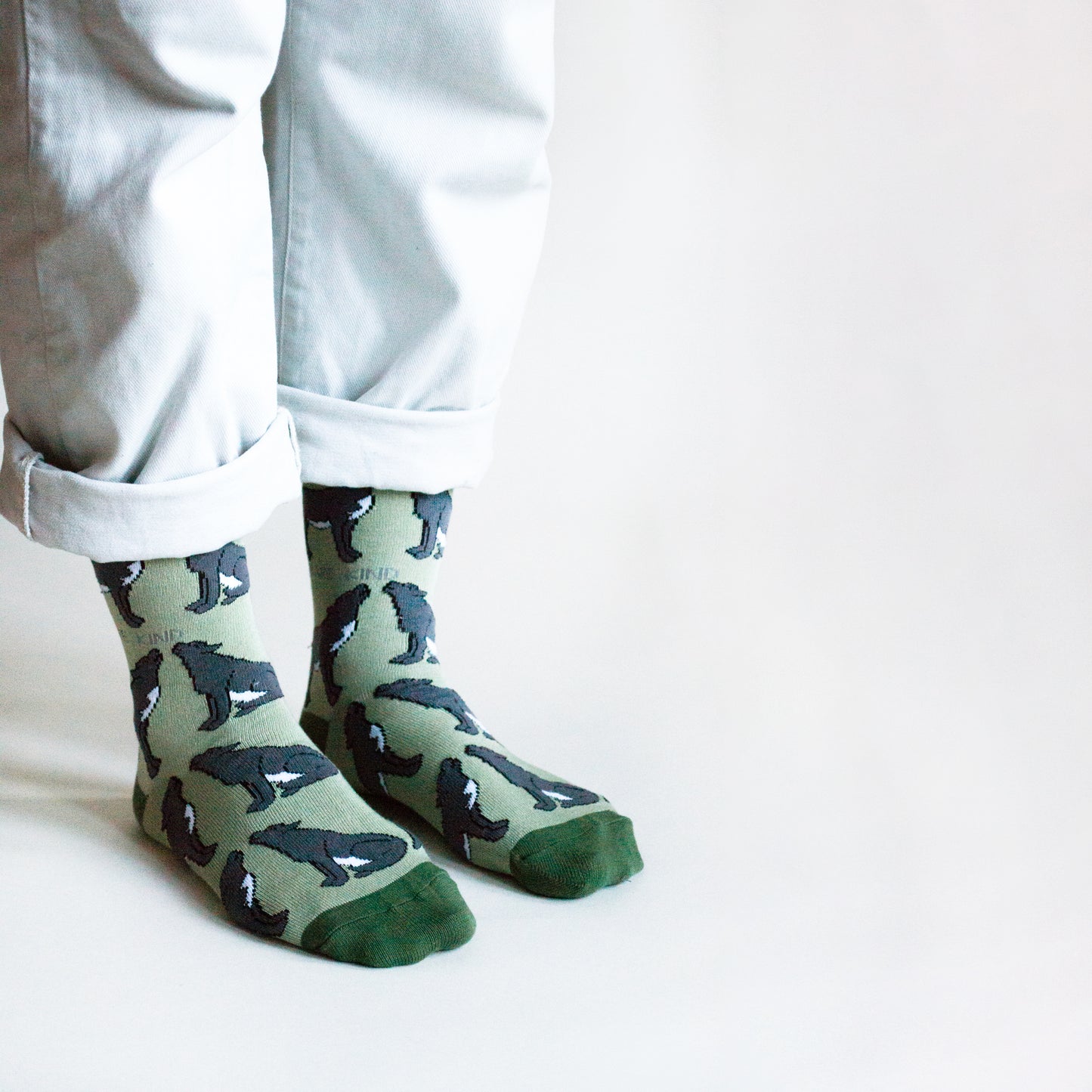

Our Philosophy
Restoring the biodiversity of our planet and its varied species is at the core of Bare Kind’s mission. By donating 10% of gross profits to charities that support the animals on our socks, we can continue fighting the fight against species extinction.
Bare Kind has been able to achieve an all-time high of donations in recent years. The business expanded its sock range to 40+ pairs and supports 35+ charities.
Our Charity Impact Reports highlight the projects we have been able to fund with our charity partners and the incredible animals we support.
Our hope is that something as humble as a pair of socks can make a lasting impression on our world and change it for the better. A huge thank you goes out to all our customers who have wanted to make a difference and empower the restoration of our planet with their socks.
